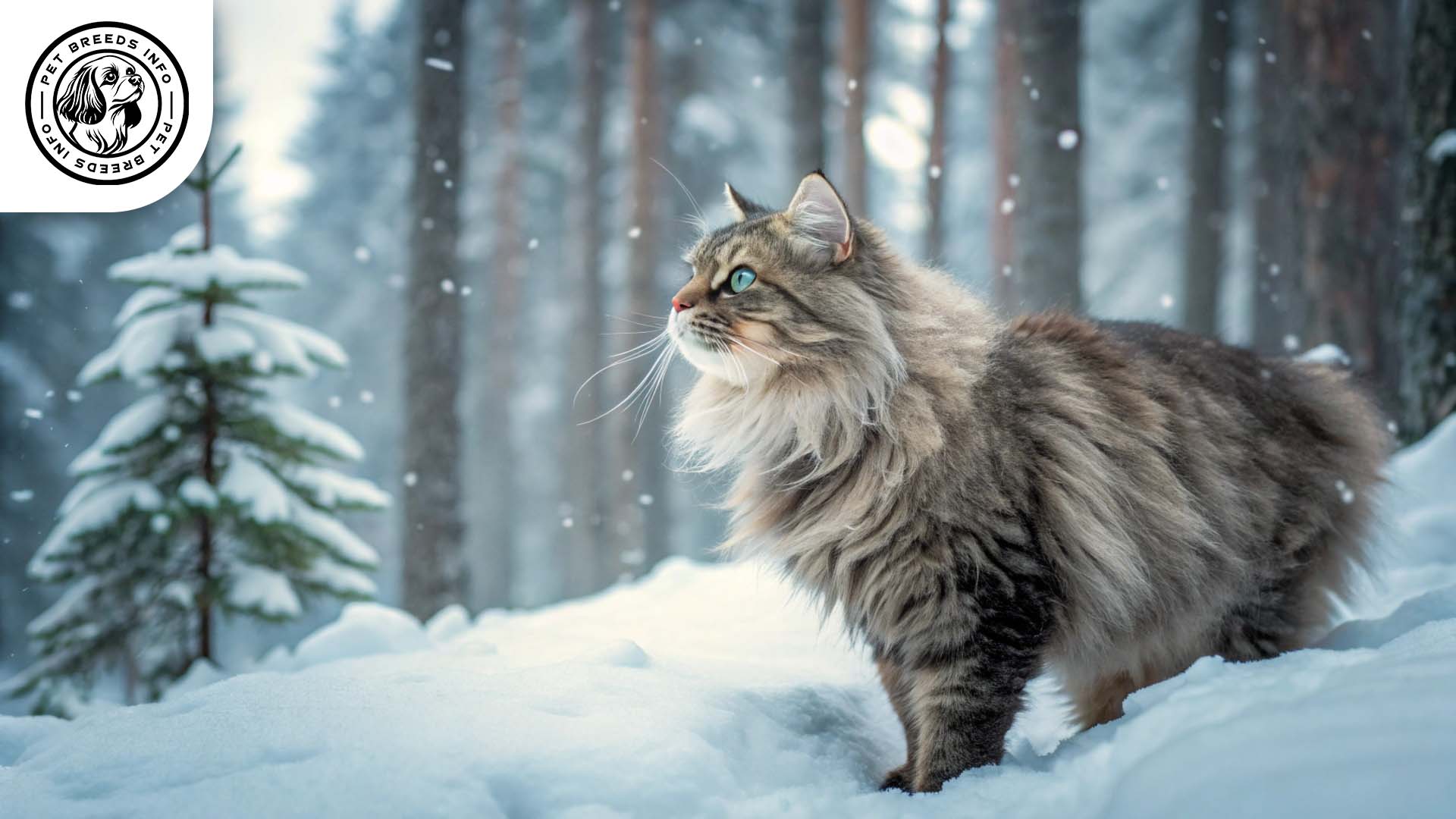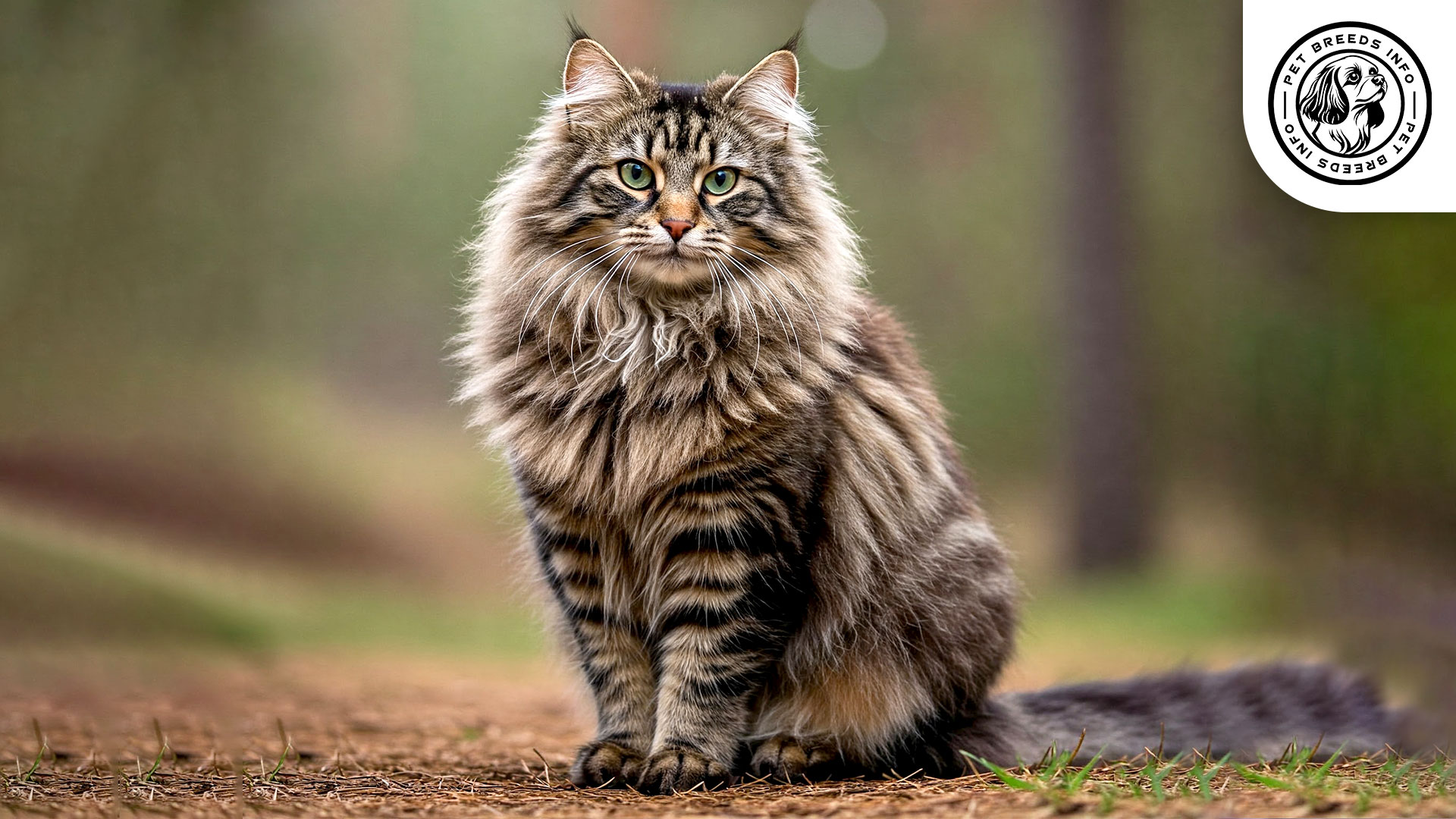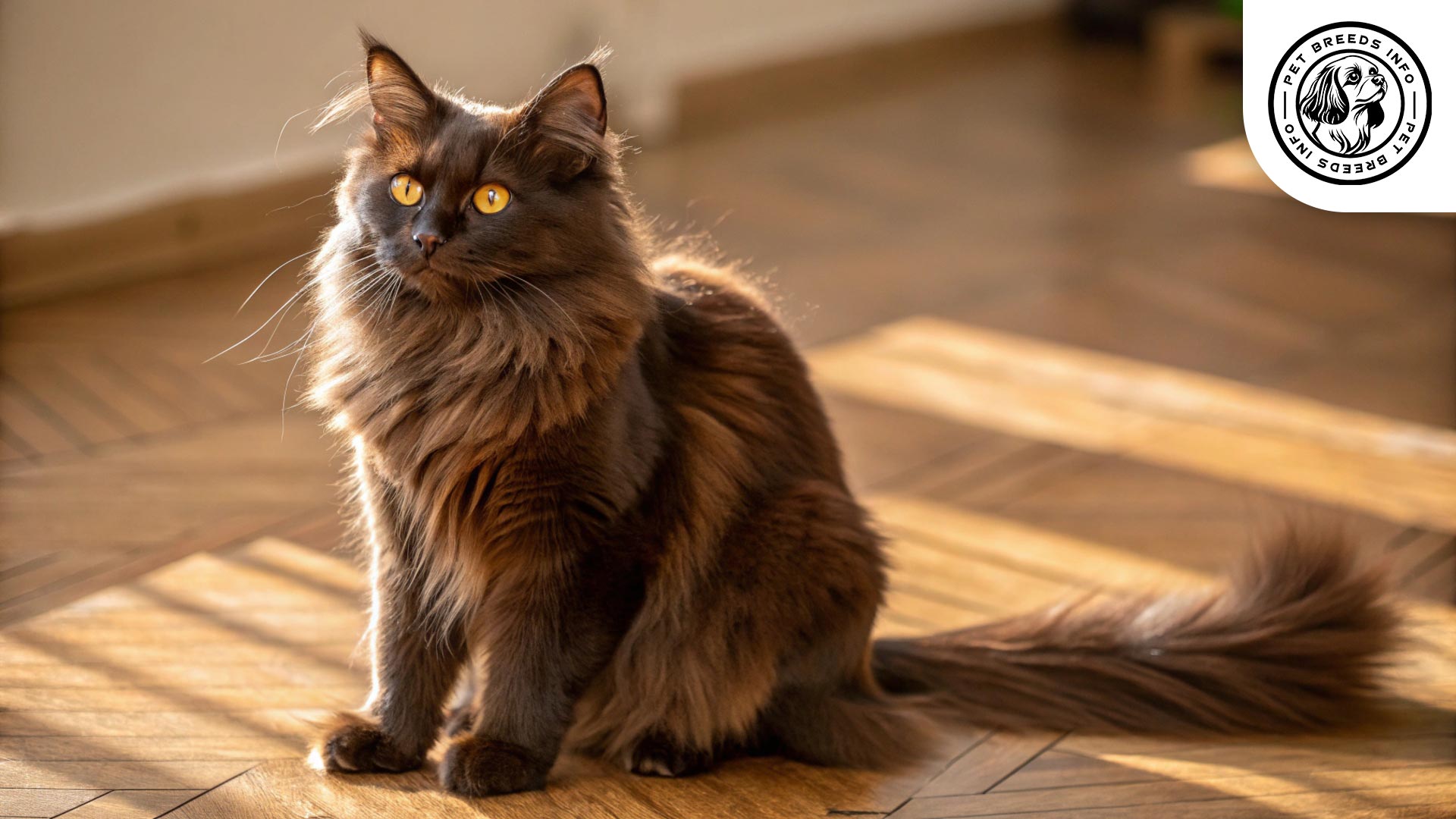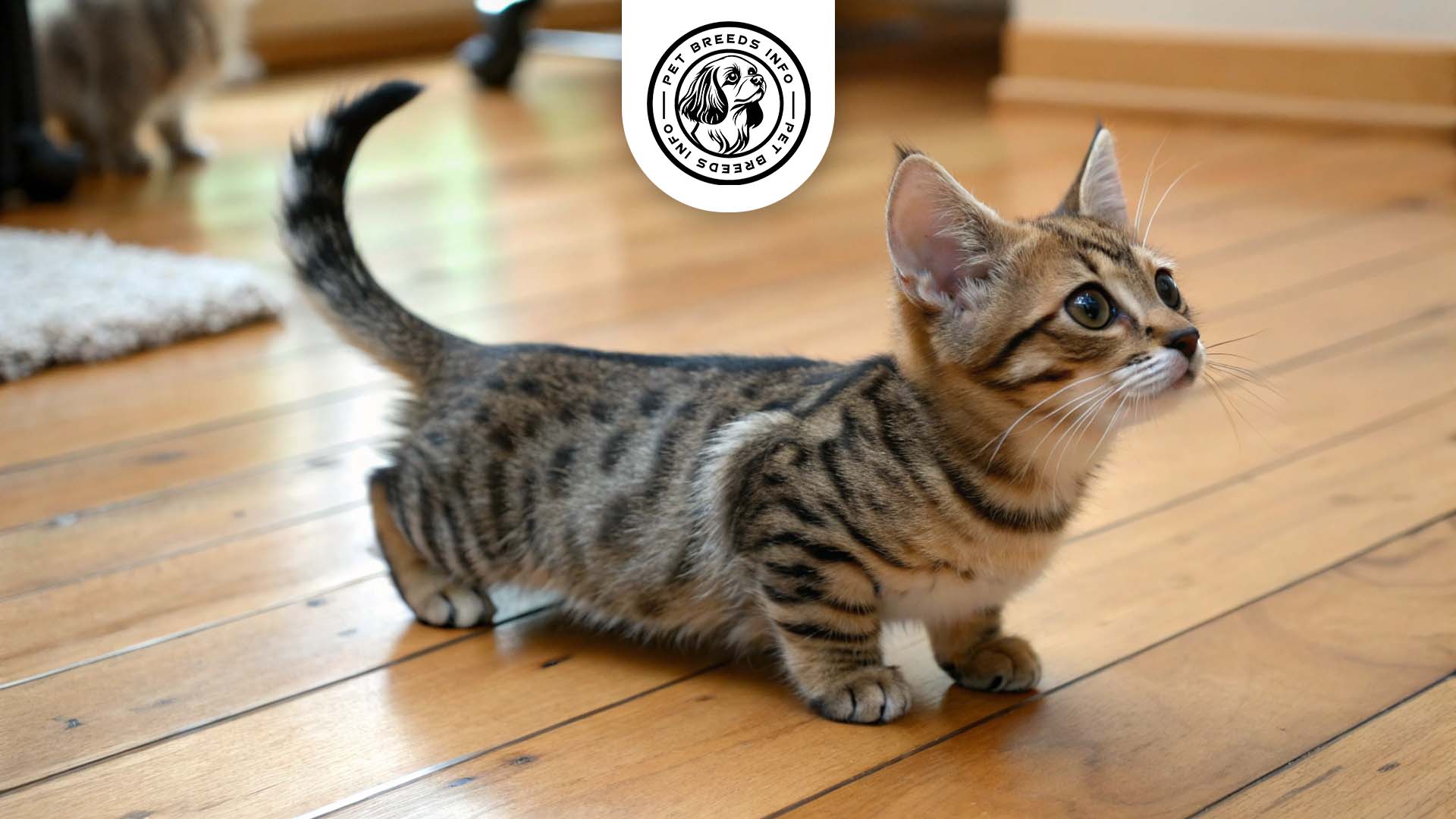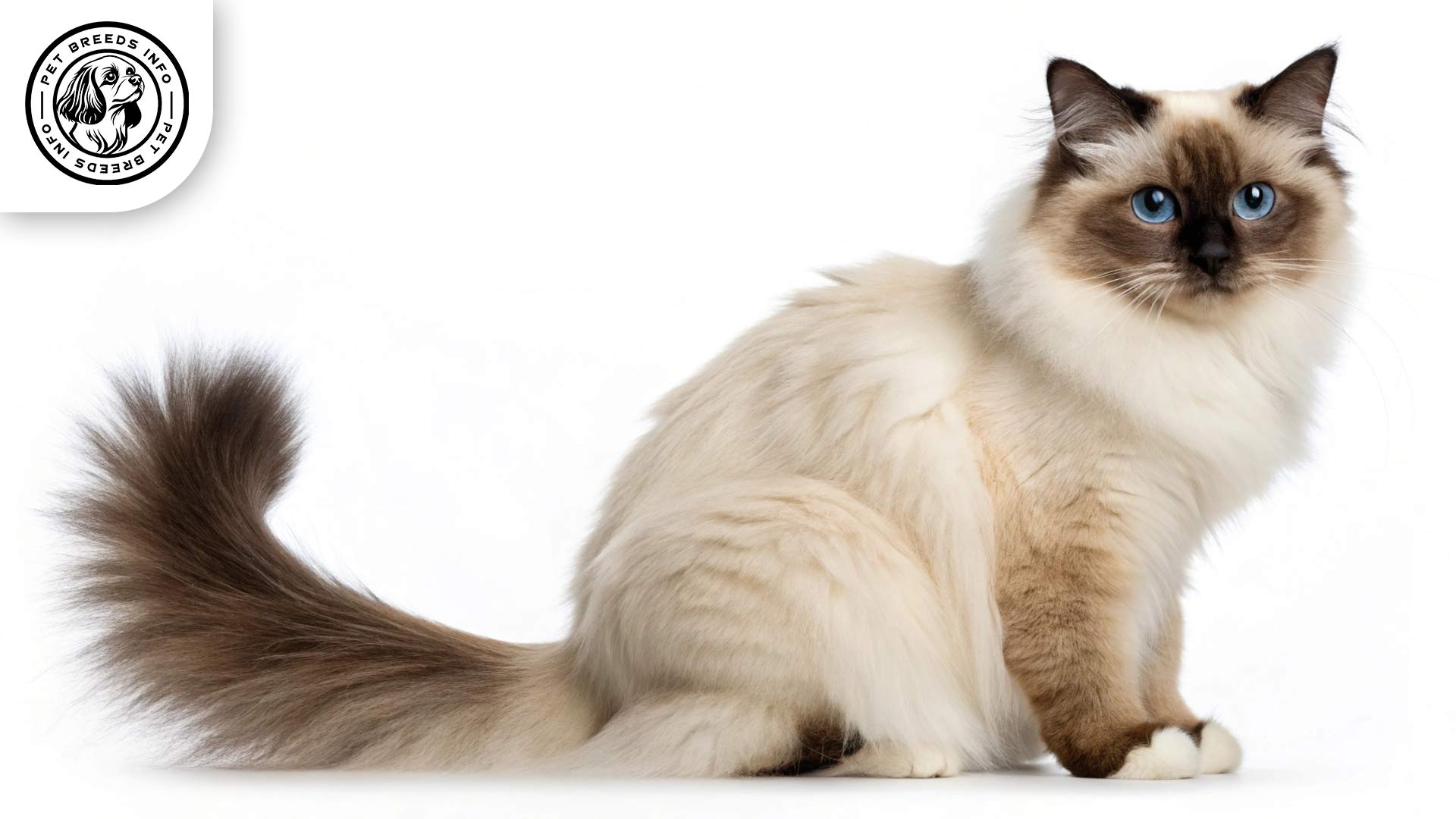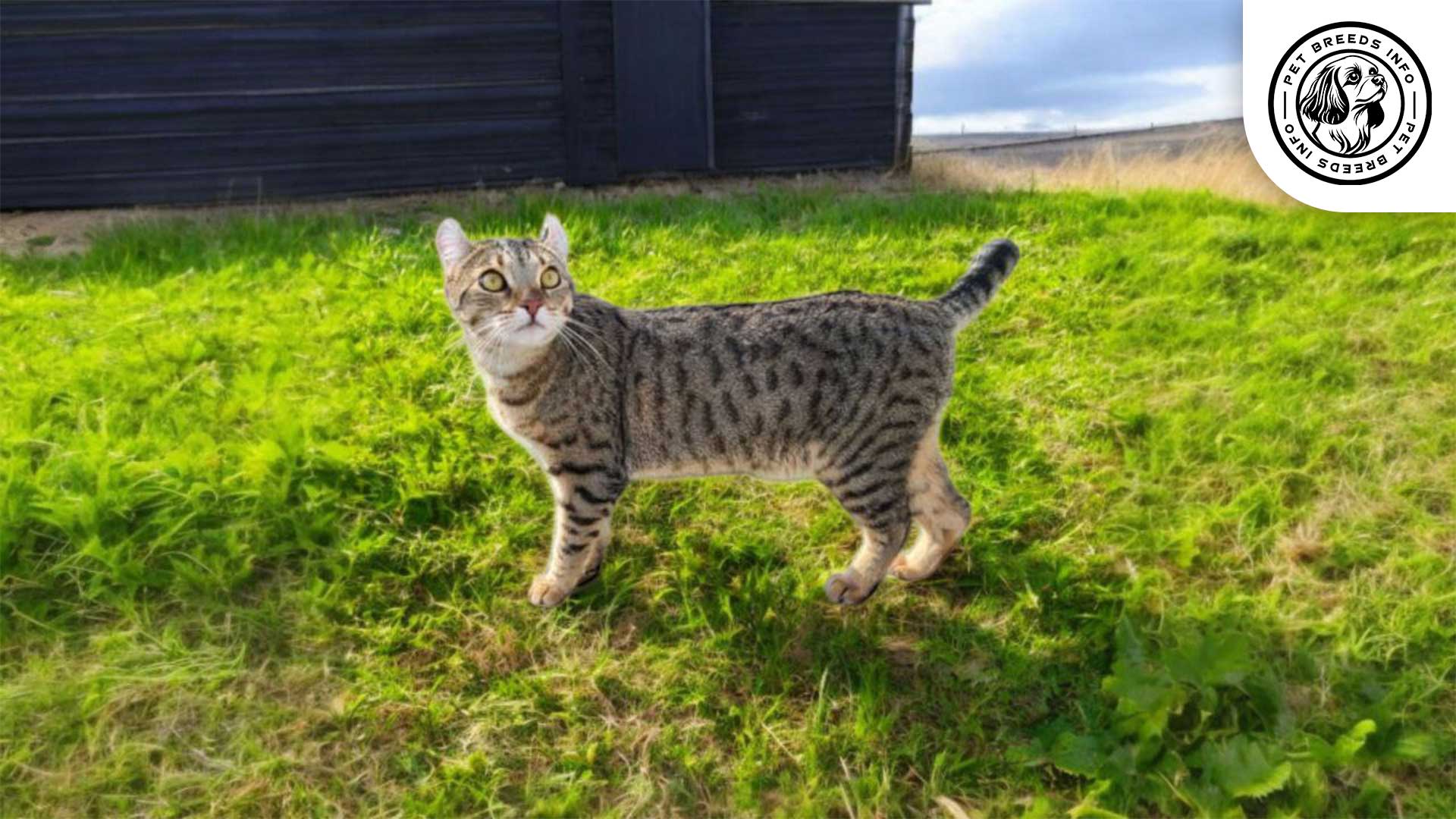Siberian Cat Breed : Size , Health, Price & Personality
General Introduction of the Breed
The Siberian cat, also known as the Siberian Forest Cat (Сибирская кошка in Russian), is a natural breed that originates from Russia. This breed has a long and fascinating history, dating back several centuries as a native cat of Siberia. It is believed to have developed naturally in the harsh climate of Russia, evolving a thick coat to survive extreme cold. The breed was officially recognized in the late 20th century and has since gained popularity worldwide.
Table of Contents
| Weight | Males: 15-20 lbs (7-9 kg), Females: 10-15 lbs (4-7 kg) |
| Lifespan | 12-15 years, with some living longer with proper care |
| Diet | High-protein diet (dry, wet, or raw food); avoid toxic foods like chocolate, onions, and garlic |
| Care | Requires brushing 2-3 times a week; more frequent grooming during seasonal shedding |
| Health | Generally healthy but may be prone to hypertrophic cardiomyopathy (HCM) |
| Color | Various colors including white, black, blue, red, cream, silver, and tabby patterns |
| Nature | Intelligent, affectionate, playful, and social; bonds well with humans and other pets |
| Price | $1,000 – $2,500 depending on breeder, pedigree, and location |
Physical Characteristics
The Siberian cat is a medium to large-sized breed. Males typically weigh between 15 and 20 pounds, while females are smaller, ranging from 10 to 15 pounds. They have a muscular and sturdy build.
Their coat is long and thick, with a dense undercoat that provides excellent insulation. It comes in various colors, including but not limited to white, black, blue, red, cream, silver, and tabby patterns.
Siberians have large, expressive eyes that can be green, gold, or blue. Some may even have odd-colored eyes.
The breed has medium to large, rounded ears with slight tufts at the tips. Their tail is full and bushy, complementing their luxurious fur.
Unique physical traits include a broad chest, powerful legs, and large, tufted paws, which help them walk on snow.
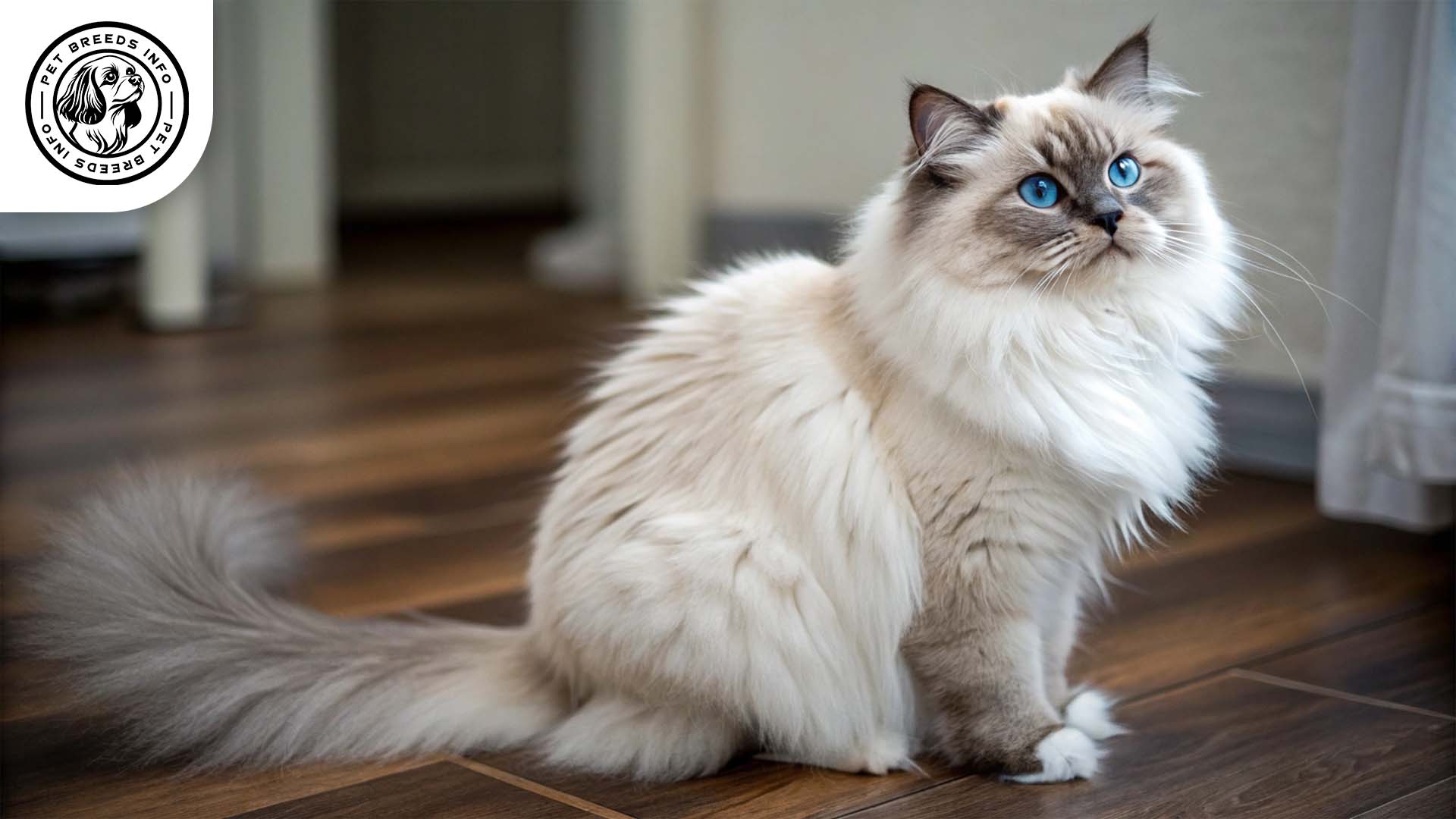
Personality and Temperament
The Siberian cat is highly intelligent and quick to learn tricks. They are playful and curious, often entertaining themselves and their owners.
They have a high energy level and require interactive play. Their attachment to their owners is strong, as they are known for being affectionate and devoted.
Siberians are highly social and get along well with humans, including children. They usually tolerate other pets, including dogs and other cats, if introduced properly.
Read More: Persian Cat
This breed retains some hunting instincts and enjoys chasing toys or other small objects.
Siberians adapt well to different environments but may be sensitive to sudden changes in routine.
Care and Maintenance Requirements
To stay happy and healthy, Siberians need regular play sessions and opportunities to climb and explore.
They can adapt to apartment living but prefer homes with more space for movement.
Their thick coat requires grooming two to three times a week. Shedding increases during seasonal changes, requiring more frequent brushing.
Siberians tolerate cold weather well but may struggle in extreme heat. Providing a cool environment in summer is essential.
Routine hygiene includes occasional baths, regular nail trimming, and ear cleaning. Dental care should also be prioritized.
Read More: LaPerm Cat
Diet and Nutrition
A high-protein diet is ideal for Siberians, including quality dry or wet food. A raw or natural diet can also be considered if balanced properly.
The breed has no major dietary restrictions but thrives on a diet rich in proteins and low in fillers like grains.
Toxic foods such as chocolate, onions, garlic, and alcohol should always be avoided.
Recommended portion sizes depend on the cat’s weight and activity level, usually divided into two meals a day.
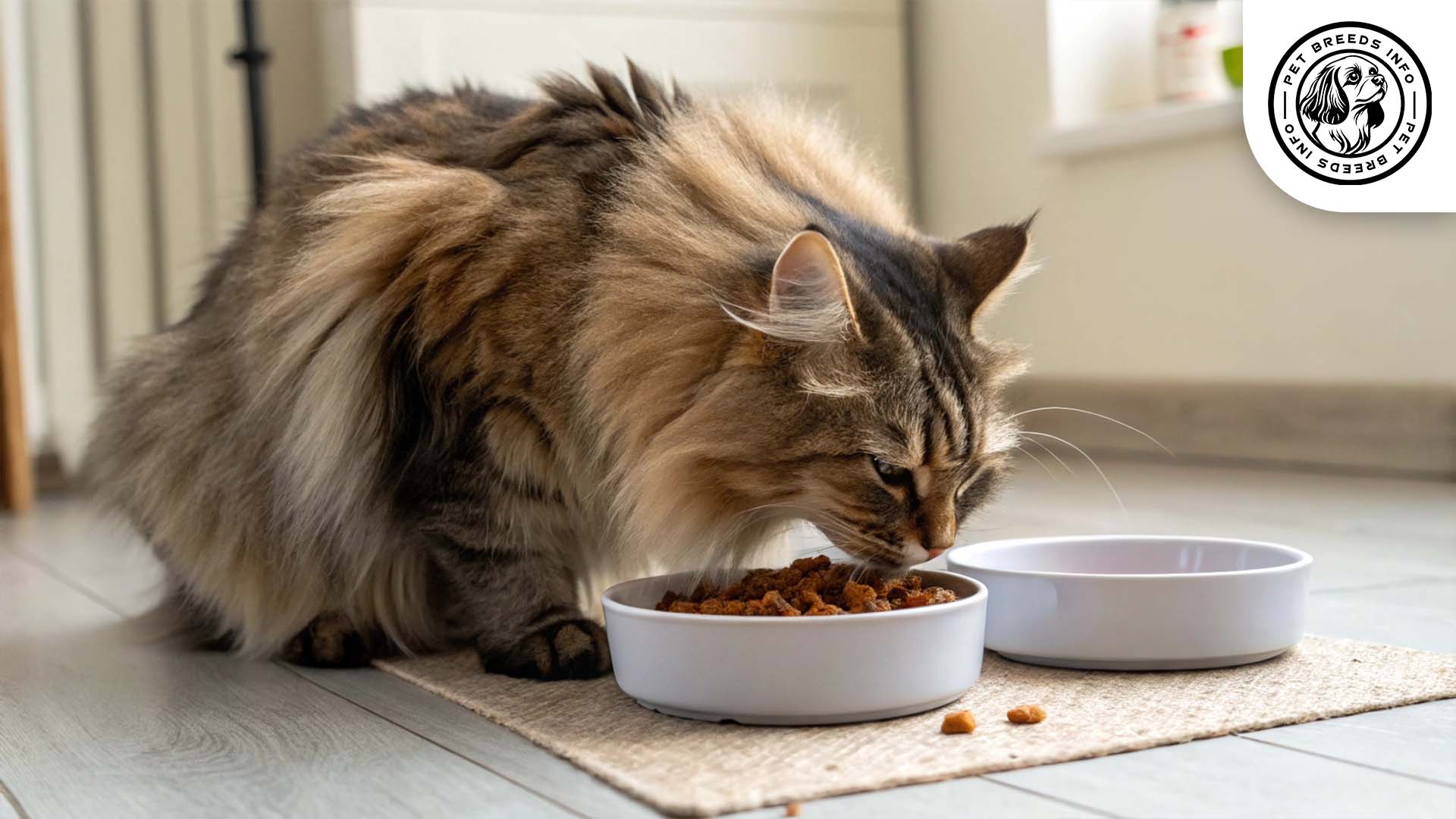
Health and Common Medical Issues
The Siberian cat is generally a healthy breed but may be prone to hypertrophic cardiomyopathy (HCM), a common genetic heart condition in cats.
They are typically hardy and resistant to many feline illnesses but should receive regular veterinary checkups.
The average lifespan of a Siberian cat ranges from 12 to 15 years, with some living even longer with proper care.
Vaccinations, parasite control, and routine wellness exams are essential for maintaining their health.
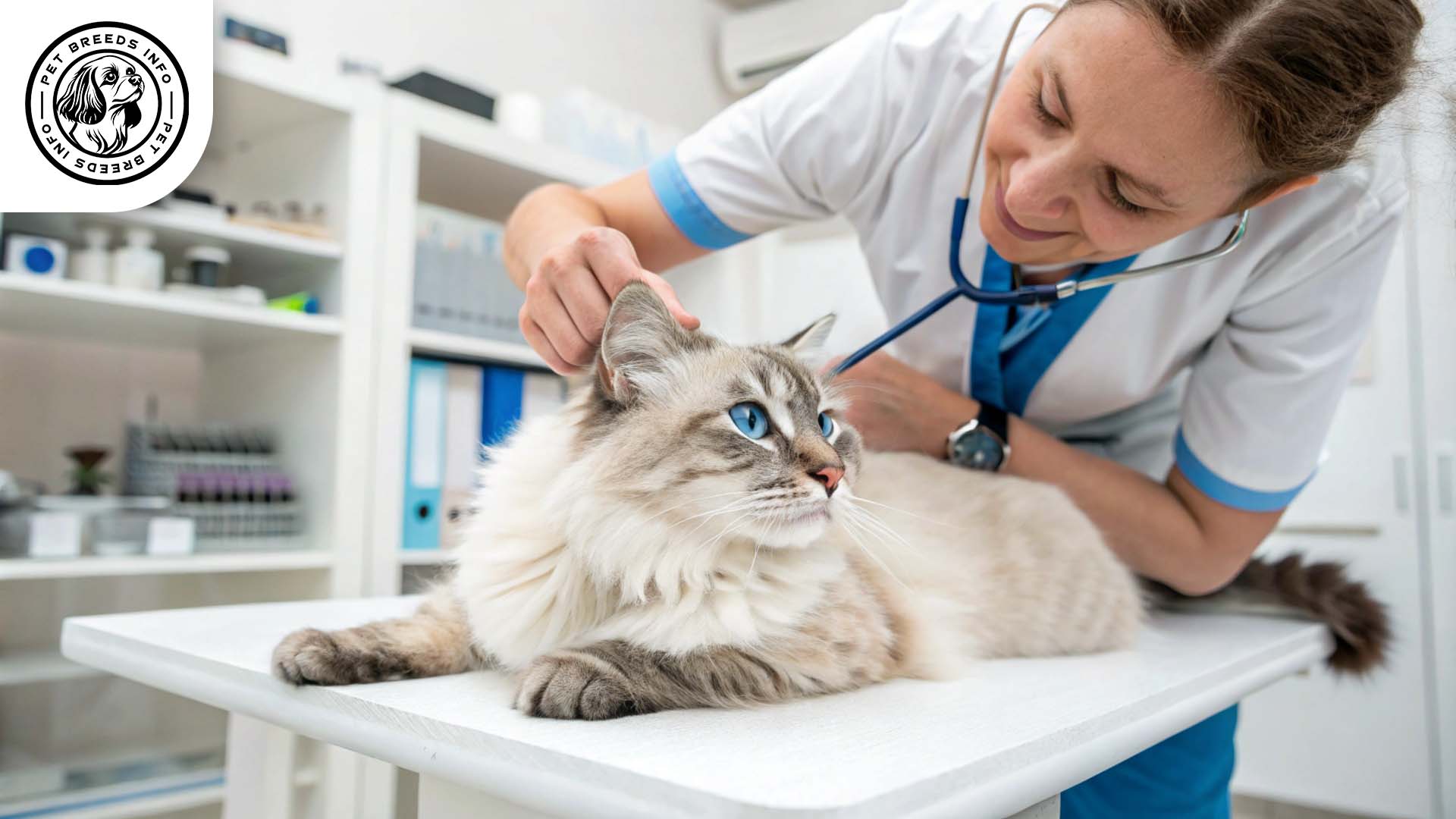
Training and Behavior Management
Siberians are generally easy to train due to their intelligence and eagerness to interact with humans.
Positive reinforcement methods, such as treats and praise, work best for training.
Early socialization is crucial for well-rounded behavior, especially with other pets or children.
They enjoy mentally stimulating activities and can learn tricks or leash-walking with patience and consistency.
Interaction with Other Animals and Humans
Siberians are excellent companions for children, as they are patient and enjoy interactive play.
They usually get along well with other pets, including well-behaved dogs.
This breed is suitable for families and individuals alike, as they form strong bonds with their owners.
While affectionate, Siberians maintain a degree of independence and may not be overly clingy.
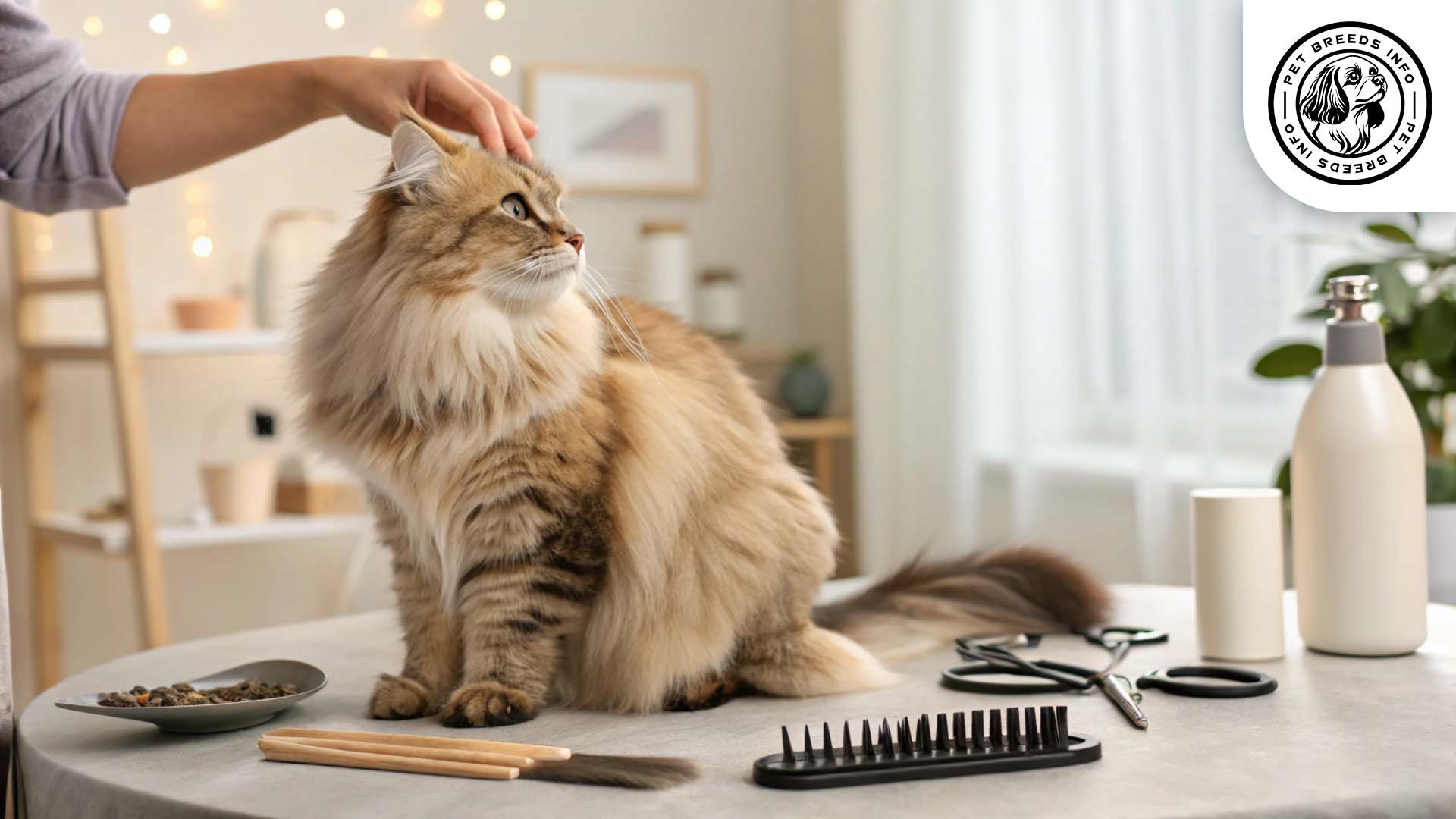
Price and Availability
The cost of a Siberian kitten varies, usually ranging between $1,000 and $2,500, depending on pedigree and breeder reputation.
Prospective owners should ensure they buy from reputable breeders who prioritize health and proper socialization.
Adoption from shelters or breed-specific rescues is also an option for those looking to provide a home to a Siberian in need.
Read More: Chantilly-Tiffany Cat Breed
Conclusion and Final Thoughts
The Siberian cat is an excellent choice for owners looking for an affectionate, intelligent, and playful companion.
They thrive in homes where they receive attention, playtime, and regular grooming.
Before bringing a Siberian home, potential owners should consider their grooming needs and activity levels.
With proper care, a Siberian cat can be a loving and loyal addition to the family for many years.
FAQ
What makes the Siberian cat unique compared to other breeds?
The Siberian cat is known for its thick, water-resistant coat, strong muscular build, and playful yet affectionate personality. It is also considered hypoallergenic due to lower levels of the allergenic protein Fel d 1.
Do Siberian cats require a lot of grooming?
Yes, their long, triple-layered coat requires brushing two to three times a week to prevent matting. During seasonal shedding, more frequent grooming is necessary.
Are Siberian cats good with children and other pets?
Absolutely! Siberians are social, friendly, and patient, making them great companions for children and other pets, including dogs, when introduced properly.
How much exercise does a Siberian cat need?
Siberians are active and playful cats that need daily interactive play sessions, climbing opportunities, and engaging toys to keep them physically and mentally stimulated.
Are Siberian cats suitable for people with allergies?
While no cat is completely hypoallergenic, Siberians produce lower levels of Fel d 1, making them a better option for allergy sufferers. However, individual reactions may vary.
